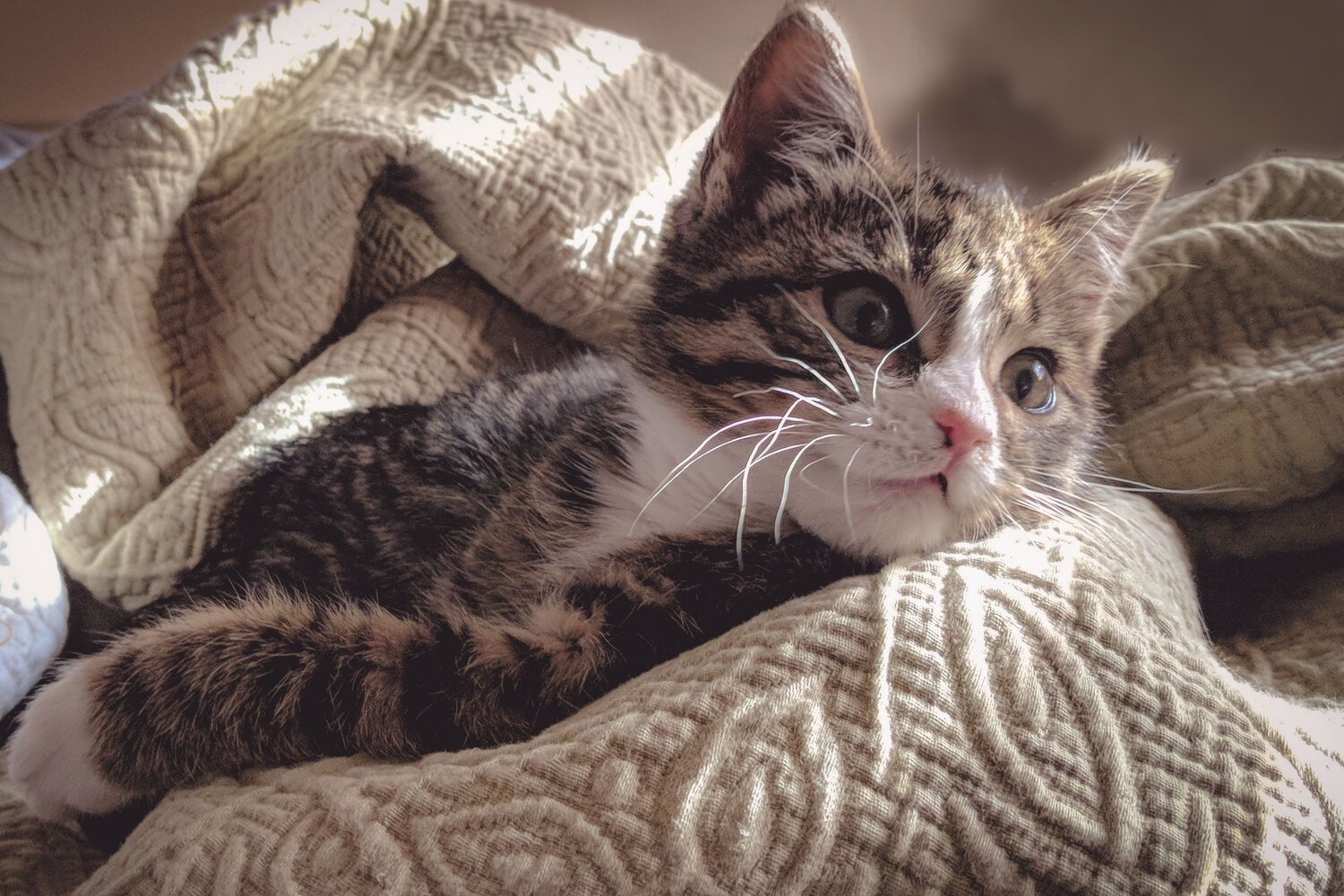
CAT SENIOR CARE
Loving Care for Your Older Cat

What are signs and symptoms that my cat may be slowing down?
As cats age, subtle changes in behavior can signal the onset of aging. Look for alterations in activity levels, such as a decrease in playfulness or reluctance to engage in high-energy activities. Changes in grooming habits, like reduced self-grooming leading to a less pristine coat, can also be indicative. Keep a close eye on appetite fluctuations, weight loss, or gain, as these can signal underlying health issues
What are some health complications commonly experienced by senior cats?
Arthritis is a prevalent issue, impacting joint mobility and causing discomfort. Dental problems, such as periodontal disease, become more common with age, affecting both oral health and overall well-being. Kidney disease is a significant concern, emphasizing the importance of monitoring kidney function through regular veterinary check-ups. Cognitive decline, or feline cognitive dysfunction (FCD), can manifest as disorientation, altered sleep patterns, and changes in social behavior.
What types of preventative care can help extend my cat's lifespan?
Regular veterinary check-ups allow for early detection of age-related conditions. Balanced nutrition is crucial; consider diets formulated for senior cats, addressing issues like weight management and joint health. Dental care, including professional cleanings, prevents dental problems. Ensure a comfortable environment by providing cozy beds, easy-to-reach essentials, and mental stimulation to combat cognitive decline.
How do my cat's nutritional needs change as they age?
As cats age, they may experience changes in metabolism, immune function, and dental health. Senior cat food formulations typically address these changes, offering controlled calorie content, joint-supporting nutrients, and dental-friendly kibble. Adequate protein remains crucial, but adjustments in fat content may be needed to manage weight. Regular consultation with your vet will help tailor the diet to your cat's specific health requirements.
FAQ
-
Cats are generally considered seniors around 10 years old, but this can vary based on breed and health.
-
Elderly pets tend to have lower immune function than younger pets. This means that booster vaccines may be essential for older dogs and cats. Some animals do not develop immune responses to some diseases.
-
Ensure their beds and food are positioned at a level that avoids the need for high jumps. Provide the cat with privacy and minimize exposure to stressors. Opt for a high-quality diets, preferably canned food.
-
Regular blood tests, blood pressure monitoring, and other diagnostic tests can aid in assessing and managing senior cat health.
